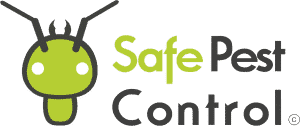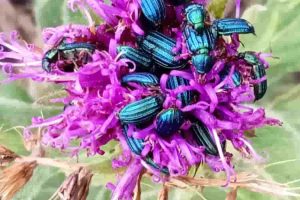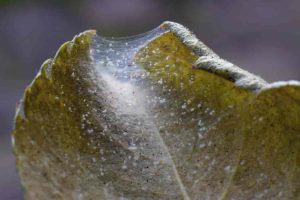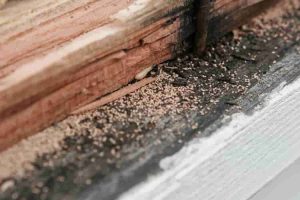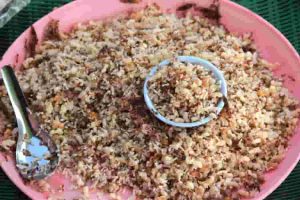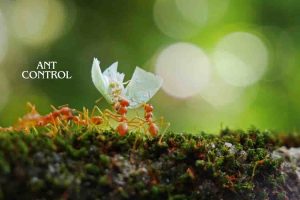Dealing with stubborn pests like cockroaches, ants, and spiders can be challenging, but it’s not impossible. To keep cockroaches at bay, a mix of borax and sugar works wonders, drawing in the pests and dehydrating their exoskeletons. For ants, wiping down their trails and using baking soda mixed with sugar helps dissolve their colonies without harmful chemicals.
When it comes to spiders, sealing cracks and removing food sources like other insects can make a significant difference. We can also use natural deterrents such as essential oils to keep these eight-legged invaders out. By understanding and employing these strategies, we can maintain a pest-free home without resorting to harsh pesticides.
Understanding Common Household Pests
Cockroaches, ants, and spiders can quickly turn our homes into uncomfortable spaces. Knowing how to identify these pests and understanding their behaviors can help us better manage and control them.
Cockroach Identification and Habits
Cockroaches are among the most common pests. They have oval-shaped bodies and long antennae. The six most common species in Australia include the Australian cockroach, Oriental cockroach, German cockroach, American cockroach, and Brown-banded cockroach.
These insects thrive in warm, moist environments like kitchens and bathrooms. They are nocturnal and hide during the day. Cockroaches feed on almost anything, including food crumbs, garbage, and even other insects.
They can contaminate food and spread diseases such as salmonella and E. coli. It’s vital to keep our homes clean and seal entry points to prevent infestations.
Ant Species and Behaviors
Ants are persistent pests that can invade our kitchens and pantries. In Australia, we commonly encounter species like the Black House Ant and Coastal Brown Ant. These species vary in size and color, but they often form large colonies.
Ants are attracted to sugary and greasy foods. They leave a scent trail that helps other ants find food sources. While most ants are not harmful, they can be a significant nuisance.
Keep food stored in airtight containers and clean up spills promptly to avoid attracting ants. Using bait traps can help control and eliminate colonies.
Spider Varieties and Risks
Spiders are another group of pests we often find in our homes. Some species, like the Huntsman and Daddy Long Legs, are harmless and even help control other insects. However, venomous spiders like the Redback and Funnel-web spider pose health risks.
Spiders typically prefer dark, undisturbed areas such as basements, closets, and attics. They feed on other insects, making them beneficial in some ways.
To discourage spiders, reduce clutter and vacuum regularly. Seal cracks and gaps to prevent them from entering our homes. In the case of venomous spiders, it may be best to seek professional pest control services.
Preventative Measures
To keep pests like cockroaches, ants, and spiders at bay, it is crucial to secure food and water sources, reinforce entry points, and eliminate clutter while maintaining cleanliness. Let’s dive into these key strategies.
Securing Food and Water Sources
Pests are often attracted to the smell and availability of food and water. We need to make sure our food is stored in airtight containers, reducing the chance for pests to find an easy meal. Clean up spills and crumbs immediately to prevent attracting ants and cockroaches.
Keep pet food sealed and avoid leaving it out overnight. Empty and clean pet water bowls regularly. Fix any leaky pipes or faucets to remove water sources for pests. Make sure our bins are tightly sealed and emptied regularly to avoid attracting pests with rubbish.
Reinforcing Entry Points
One of the most effective ways to keep pests out is to seal entry points. Install tight-fitting screens on windows and doors. Use weather strips to seal any gaps and cracks around doors and windows. Regularly inspect for any crevices or holes in the walls and foundation.
Check around pipes and electrical outlets; fill any gaps with caulk or other sealants. Pay attention to spaces where pests might crawl through, and take proactive steps to block their entry. This can significantly reduce the chances of an infestation.
Reducing Clutter and Maintaining Cleanliness
Clutter provides hiding spots for pests, making it harder to get rid of them. Regularly declutter our living spaces to limit places where pests can hide. This includes keeping storage areas organized and removing unnecessary items.
Ensure that cleaning routines are thorough, focusing on often overlooked areas like behind appliances and under sinks. Regularly vacuum and sweep floors to pick up food crumbs and debris. Keep kitchen and bathroom areas, where pests are most likely to thrive, as clean as possible.
By following these preventative measures, we can create an environment that is much less inviting to pests. This proactive approach can save us a lot of time and trouble dealing with infestations later on.
Natural and Chemical Solutions
In dealing with pests like cockroaches, ants, and spiders, we can choose between chemical baits and natural remedies. Both methods have their benefits and can be effective based on the situation.
Utilizing Chemical Baits and Repellents
Chemical baits are a common solution for pest control. Baits attract pests with a tempting substance mixed with a poison. Roaches, ants, and other insects consume these baits, taking the poison back to their nests, effectively reducing the population.
Powerful chemicals like boric acid are often used in these baits. Boric acid disrupts the pest’s digestive systems, causing death over time. It’s crucial to place these baits in areas where pests are commonly seen, such as under sinks, near garbage bins, and along crevices.
Repellents are another approach. Unlike baits, which attract and kill, repellents are designed to drive pests away from an area. These can be sprays or powders that create a barrier pests do not like to cross. Chemical repellents can be effective but should be used carefully, especially around pets and children.
Exploring Natural Remedies and Repellents
Natural remedies are increasingly popular for those looking for non-toxic pest control methods. Baking soda and sugar is one simple mixture. The sugar lures the pests, and the baking soda kills them. This method works well in small bowls placed where pests are active.
Peppermint oil is a celebrated natural repellent. A peppermint oil spray can deter roaches and is safe around kids. Similarly, coffee grounds can be used to trap cockroaches. By mixing coffee grounds with water in a jar, we can create a trap that drowns the cockroaches.
Other natural deterrents include cinnamon and bay leaves. Ants and other insects do not like their strong smells, making these spices effective barriers. Placing bay leaves in pantry corners or cinnamon sticks along window sills can prevent pests from entering.
By using these combinations of baits, chemicals, and natural repellents, we can effectively manage pest control in our homes.
Professional Intervention and Long-Term Strategies
Dealing with pests like cockroaches, ants, and spiders often requires help from professionals and ongoing strategies to prevent reoccurrence. Here, we outline when to call the experts and how to create a plan for lasting pest control.
When to Call Pest Control Experts
There are times when an infestation goes beyond what we can handle on our own. If we notice large numbers of ants regularly or if cockroaches persist despite our best efforts, it’s time to contact pest control experts. They have the tools and knowledge to eliminate these pests effectively.
Professionals can also deal with hard-to-reach places, like cracks and behind appliances, where pests often hide. Additionally, they can safely handle pests that pose health risks, such as cockroaches, which carry bacteria and allergens.
For spider infestations, experts can identify and remove venomous species, keeping our families safe. Regular visits from pest control experts provide ongoing protection against future infestations.
Developing an Integrated Pest Management Plan
An Integrated Pest Management (IPM) plan combines various techniques to manage pests effectively while minimizing harm to the environment and human health. Our plan should start with prevention.
We can weatherproof our homes by sealing cracks and gaps to prevent ants, cockroaches, and spiders from entering. It’s crucial to maintain cleanliness by keeping trash sealed and food stored properly, reducing attractants for cockroaches and ants.
Monitoring is the next step. Regular inspections help us detect early signs of an ant infestation or the presence of cockroaches. Traps and baits are useful tools in this stage.
Finally, if pests are detected, we employ targeted treatments like bait stations for ants or insecticidal sprays for cockroach infestation. Combining these methods with professional intervention helps us get rid of cockroaches and other pests effectively.
On-Time Service

5 STAR SERVICE BASED ON 100+ GOOGLE REVIEWS
PET & FAMILY FRIENDLY TREATMENT

ALL YEAR-ROUND PROTECTION
Take Back Control Now
8
REASON TO CHOOSE SAFE PEST CONTROL
- Guarantee protection all year-round
- 30 Years Collective Experience
- An impeccable reputation across Sydney's Suburbs
- Certified treatments & written Warranty On all work carried out
- Family Owned & Operated
- Rated #1 Pest Control In Sydney NSW
- No Mess, No Smell
- Family & Pet Friendly Treatments
REQUEST A QUOTE
